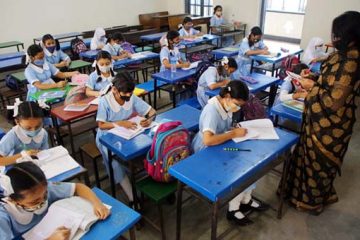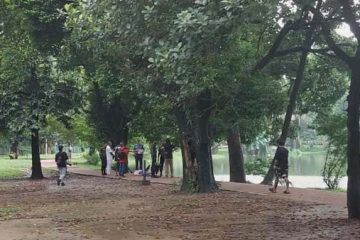With the government allowing four private universities to set up in Dhaka in the past two years, the University Grants Commission officials and educationalists have expressed concern about the regional inequality in the provision of higher education. The approval in the past week of a Dhaka-based private university brought the total number of universities in Dhaka to 58 — 46 private and 12 public universities — accounting for more than a half of all universities in the country.
In addition, there are many universities illegally running more than one campuses in Dhaka
In the past two years, a little more than seven lakh students passed their higher secondary certificate and equivalent examinations with a total of six lakh higher education places available for them in 52 private and 33 public universities, not including the Open University, according to the University Grants Commission.
Although there is a mismatch between the supply and the demand, a quarter of the places in private universities are not taken, according to the latest figures dealing with 2011.
A senior UGC official told New Age that in 2010, the government decided in principle not to set up any university in Dhaka but since then, it had given the permission in 2012 to the European University, Bangladesh University of Health Science, BGMEA University of Fashions and Technology. And in the past week, when it approved six universities, one of them, Far East International University, is to be located in Dhaka.
‘There should be a balanced distribution of higher education institutions. There are now 58 universities for 1.5 crore people of Dhaka and 53 universities for 14 crore people,’ Bangladesh University of Engineering and Technology’s urban and regional planning professor Sarwar Jahan told New Age.
‘Private universities are getting approval on political considerations not as part of a plan to spread education across the country,’ he added.
Former UGC chairman Nazrul Islam agreed.
‘Setting up universities in Dhaka is widening the regional disparity. And the number of universities in Dhaka has increased disproportionately compared with the rest of the country,’ he told New Age.
He said that during his tenure, the UGC made a recommendation that no new university should get approval without having its own permanent campus.
He said that there were allegations against many existing private universities doing ‘business’ in the name of providing education and the government was unable to make them follow the rules.
‘A strong implementation of the law is needed to stop such weaknesses,’ he said.
A concern is that Dhaka-based private universities are being set up when the existing ones which have been around for a long time are failing to follow the rules.
UGC officials point out that the universities have yet to move to their own campuses, which they were supposed to do within seven years after their establishment and many are still running illegal ‘outer campuses,’ which is prohibited by the law.
Some of them are engaged in ownership conflicts and only a handful of
the universities are doing research, which is mandatory for universities.
Education ministry officials also said that there were widespread allegations of corruption with the universities engaged in ‘selling bachelor and master’s certificates’ at the same time as increasing fees every year creating particular difficulties for students.
Many of the private universities in Dhaka are located in commercial complexes, in markets and rented houses, which are not suitable for academic purposes and there was a concern that the new universities might follow in the same footsteps.
‘We discourage new universities in Dhaka,’ the current UGC chairman AK Azad Chowdury told New Age. He, however, said that no decision had been made on principle about setting up more universities in Dhaka.
‘It is true that more universities are crowding Dhaka but the demand and student pressure in the city are also high,’ Azad added.
‘By and large universities outside Dhaka gain approval but no one seems to appreciate when a university outside Dhaka gets approval,’ he said.
‘We cannot take necessary steps to stop universities breaching laws as we do not have the authority to do so,’ the UGC chairman added.
The demand for higher education in Bangladesh has been increasing gradually in parallel with the rapid growth of population. To meet the demand, a number of public and private universities have been established in different parts of the country over the years. The first public university was established in 1921 the first and private university in 1992.
According to the Association of Private Universities, no new universities are at all, however, required.
‘There is no need for new private universities in Dhaka and elsewhere in Bangladesh. Existing universities are not being allowed to set up new faculties. So how will the new ones get the permission?’ the Association of Private Universities of Bangladesh vice-president, Abul Quasem Haider, said.
‘Through approving new public universities, the government is inspiring certificate business. The government is approving new universities under political pressure which is really unfortunate,’ he said.
-With New Age input




















